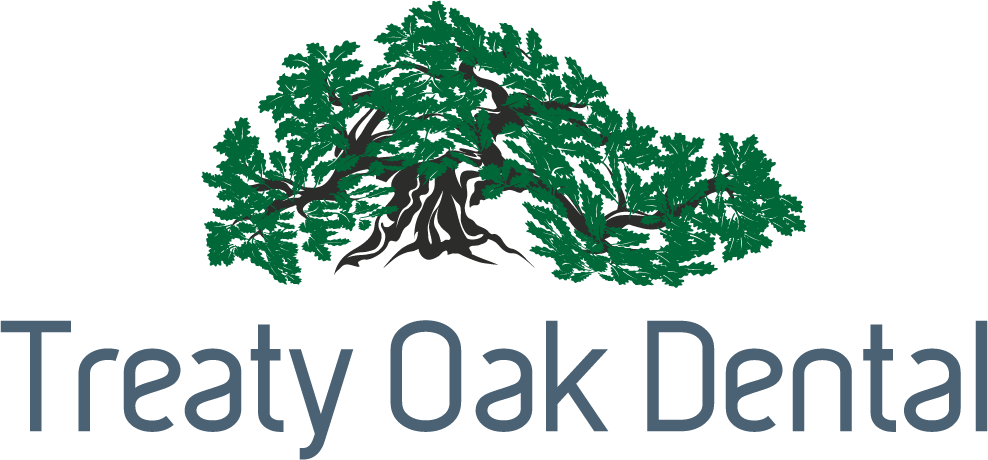The most effective way to cure cancer is early treatment.
When was your last oral cancer screening?
Our dentist at Treaty Oak Dental will perform an oral cancer screening as a part of your regular dental visit. At Treaty Oak Dental, your oral health is our top priority.
One of the most effective ways to cure oral cancer is to catch it early.
Ideally, you will have a cancer screening before you exhibit any symptoms of oral cancer.
What is an oral cancer screening?

Early detection can help prevent serious health risks.
At Treaty Oak Dental, your Central Austin dentist will not diagnose you with oral cancer during your oral cancer screening; you will be referred to a specialist for additional testing and diagnosis.
During your oral cancer screening, your dentist at Treaty Oak Dental will perform a visual examination of your mouth, nose, face, lips, and neck for any abnormalities such as swelling or discoloration.
After the visual examination, your dentist will feel for any abnormalities of the tissue such as immobility or masses.
Remember: an oral cancer screening is not a diagnosis. If you are concerned about oral cancer, our dentist at Treaty Oak Dental is here to answer any of your questions about screenings or how to reduce your risk of getting oral cancer. Our dentist is committed to protecting your long-term oral health, and your annual preventative exams are intended to help you have a healthy, beautiful smile for life.
If you are interested in an oral cancer screening, call our office today to schedule your appointment.
Risk Factors of Oral Cancer
There are a number of risk factors that affect your probability of developing oral cancer. Some of these risk factors are within your control and some are not, including:
- Tobacco
- Alcohol consumption
- Human Papillomavirus (HPV)
- Gender—oral cancer is more common in men than women
- Age—according to the American Cancer Society, most oral cancer patients are over the age of 55
- Excessive sun exposure
- Weakened immune system
- Nutrition
- Genetic predisposition
During your regular exam, our dentist will assess your health and lifestyle history to determine the frequency with which you will need an oral cancer screening.
Symptoms of oral cancer
Because the best patient outcomes are achieved when you can treat oral cancer early, you should be aware of the symptoms of oral cancer.
- White or red patches in the mouth
- Bleeding with no apparent cause
- Numbness, pain, or tenderness in the face, mouth, or neck
- Swelling, bumps, or rough spots on the lips, gums, or mouth
- Sores on the face, neck, or mouth that do not go away
- Difficulty chewing, swallowing, talking or moving your tongue or jaw
- Ear pain
- Weight loss
- Chronic sore throat or hoarseness
- Change in your bite
At Treaty Oak Dental, located near the University of Texas in Austin, Dr. Bruce Jay and his team provide exceptional dental care for patients of all ages, including children. We offer comprehensive services such as general dentistry, cosmetic treatments, dentures, emergency care, and Invisalign-like clear aligners. Serving downtown Austin, West Campus, North University, Hyde Park, and surrounding neighborhoods, we’re dedicated to creating healthy, confident smiles with personalized, family-friendly care. Contact us today to schedule your appointment and experience the compassionate dental care that Austin residents and students trust.
